Photo
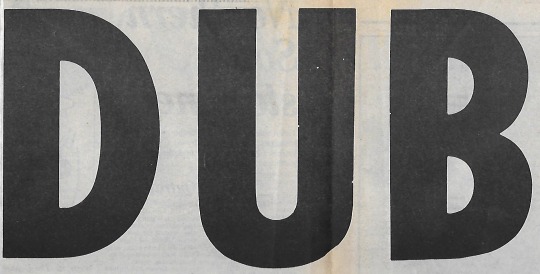
One of history’s best music lists -- better than Pitchfork’s, Rolling Stone’s, or Elvis Costello’s -- was made by a teenager named Snoopy in the summer of 1977. In the London music newspaper Black Echoes, he published his 125 favorite albums from the golden age of dub reggae. Forty-four years later, thanks to a lucky break, I found him.
Snoopy, born Paul Nagle, is a hero three times over. First, he vividly chronicled under-documented and mysterious music, producing the closest thing I know to a kind of Leonard Maltin Guide to the history of dub. Second, when I reached out, he was willing to respond to a stranger: "Hi,” he said. “My friend told me you were interested in getting in contact with me.” The third reason is that he answered my series of questions about his life, the list, and its beautiful music with the same kind of warmth and expertise that makes his writing so valuable.
His memories of late-70s reggae record shops, radio stations, zines and newspapers, and the adventures, fights, and relationships that came along with them, make for one of the best accounts I’ve ever heard of the dub reggae scene, especially the version that migrated from Jamaica to England at the height of King Tubby, Lee “Scratch” Perry, Dub Specialist, the Revolutionaries, the Aggrovators, Augustus Pablo, Yabby You, Joe Gibbs, Keith Hudson, Sonia Pottinger, 4th Street Orchestra, Lloyd Coxsone, Rupie Edwards, Derrick Harriott, Skin, Flesh & Bones, Tommy McCook, and Duke Reid. Inspired by Snoopy’s list, I made a compilation of about 81 hours of dub, which you can listen to right here. Here’s what he told me:
Who’s Snoopy?
Paul Nagle is the name I was born with. I was born in Islington, London, in April 1959, and moved with my family to the new town of Basildon, in Essex, in 1964. In 1969, when I was ten, a friend of mine’s sister recommended and lent me a book of American cartoon strips called For the Love of Peanuts. I immediately fell in love with the Peanuts gang, in particular Charlie Brown’s dog. A few years later, I became penpals with a girl from my old school called Marianne. She was in her sister’s band, had a stage name, and used to sign off her letters to me using it. I was quite jealous, so I adopted Snoopy as my pseudonym. When I was sixteen, I wrote a letter to a weekly rock paper called New Musical Express congratulating them on their recent coverage of reggae, which i was fanatical about at the time. I didn’t want to use my own name, so i signed the letter Snoopy.
It was printed as their letter of the week on their Gasbag page. There was a note at the end of my letter which asked that I contact the features editor, whose name was Neil Spencer. I did so and he invited me to start writing about reggae for them on a freelance basis. Snoopy became my nom de plume, and the nickname has stuck with me for the rest of my life. Most people, apart from my family, know me as Snoopy. Of course, people often get the name wrong: I have been called Spooky, Snotty, Snooty, Snooky, Sleepy, Noddy and countless other derivatives.
How did you learn about dub reggae? My generous dad gave me his copy of Rockers Meet King Tubby in a Firehouse.
I was nuts about records and music from a very early age. My parents had a great record collection and I could place 45s and 78s in their generic company sleeves before I could even read. By the time I was four years old I was obsessed with playing singles. In fact, the oldest living example of my handwriting, actually a scribble, is on a Tony Bennett single my dad bought in 1963 – it was also my first experience of entering a shop that sold records. My mum came from a large family and my parents and aunts and uncles were always throwing parties. My cousins had amazing records, too, and had quite eclectic tastes. So apart from the usual pop stuff, I was also hearing jazz and soul and folk and funk and reggae and country. My first musical obsession, apart from the Beatles, of course, was the Tamla Motown record label. I adored The Supremes, The Temptations, The Four Tops, The Miracles. All of them!
I was introduced to reggae by my cousin Steve around 1968. His influence on my musical directions was massive. He was an avid soul collector, too. In 1973, we moved back to London, and during the following year I got the reggae bug. I was still at school. I was spending all of my pocket money on records. I used to frequent chapel market, just around the corner from where I was born, and listen to the reggae records, because, of course, it wasn’t getting any airplay on the radio. That changed, in 1975, with the introduction of a Saturday night show called TV on Reggae, which was on a relatively new London-based station called capital. The DJ was Tommy Vance, who wasn’t a reggae buff but a good DJ. He’d have various reggae sidekicks who knew their stuff visit the show. I used to always record the show on cassette tape – and one week there was a whole hour dedicated towards dub. This one show completely blew my mind. I had heard and owned b-side dubs and versions, but it was the first time I’d heard tracks taken from dub albums. I didn’t have a clue what most of the records were, because it was an uninterrupted session. No information was given about the chosen tracks, but it made things all the more exciting trying to find out what they all were over the next few years.

What was Black Echoes, and how did you end up publishing the list?
In January 1976, a new weekly Black music newspaper was published in the UK, which featured soul, reggae, jazz and blues. I was 16 and had recently started my first job, an office junior for the institute of accounting in Bedford Square in London’s West End. A ten minute walk led to a reggae record shop in Hanway Street, the first ever in that part of London. It was called Daddy Kool. This became my lunchtime hangout, and even after work and on Saturdays. I would spend nearly all my wages on records. A few doors away was a soul record shop called Contempo that I also frequented. Dave Hendley worked in there, who went on to write the reggae column for Blues & Soul magazine and take some of the greatest photographs ever of reggae artists. Steve Barrow was my go-to at Daddy Kool for tracking me down tunes. He wrote the reggae singles reviews for Black Echoes.
When I did a couple of record reviews for New Musical Express, I was introduced to Penny Reel, whose writing on reggae I had come across in the reggae fanzine Pressure Drop. He introduced me to Black Echoes’ editor, Peter Harvey, who asked if I wanted to write for the paper. I was sixteen at the time and so I was up for it, even though I had no journalistic experience. I started to do album reviews and eventually did news stories and articles, live gig reviews, interviews and took over reviewing the reggae singles when Steve Barrow left. I quickly became a fixture at Black Echoes and was the baby of the family. My ambition was to write a few articles on one of my favourite genres of music, and it the first time there had been any kind of substantial listing released worldwide of dub albums.
Did you have help?
The content of the list was mainly researched and compiled by myself, but Penny Reel and others also helped with information about albums. Of course, in those days, there were no computers. It was a lot of legwork, traipsing around London to specialist record shops and record stalls in markets and trying to find those elusive dub albums. At that time, not many were being released in the UK, so it was mainly expensive Jamaican imports that I tried to track down, to listen to -- even if not to buy. A lot of the research was really about rummaging about in specialist record shops, junk shops, mail-order lists, record company advertisements, record reviews and my own record collection and those of other fans. Gradually the list of albums grew bigger and it seemed to come together, though it was often difficult to verify things. Of course, it didn’t help that I was on a deadline for publication. There were a few errors made as a consequence, but not that many.
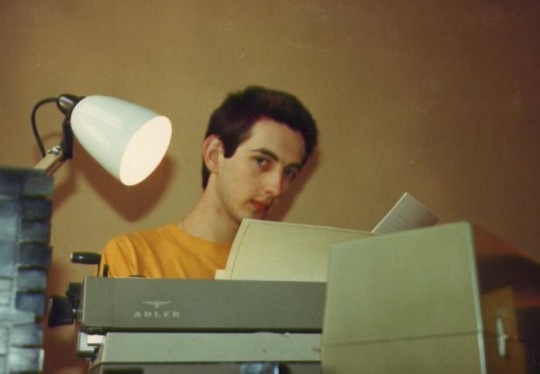
Can you describe what makes dub so magical? For me, it's the mix of the improvisation of jazz, folk music's local tradition, and gospel's holiness. But it's hard to describe, isn't it?
I think what initially fascinated me the most about dub was its fluidity and immediacy. Dub mixes are one-off attempts at recreating something new out of something previously recorded.
There is definitely something akin to jazz about dub, I suppose because mixing has that improvised feel to it, things can go either very right or very wrong. The unexpected twists and turns a dub track can take is very much like the unimaginable flights of fancy taken by Charlie Parker, John Coltrane, Jimmy Smith or even Jon Hendricks. I think the other-worldliness of dub is what makes it really magical. So many of the sounds are unlike any you’ve ever heard, at least in those early days of dub. there is also an affinity with disco which I was also heavily into during the late 70s, when producers and engineers like Shep Pettibone, Walter Gibbons, Larry Levan and the incredible Tom Moulton were laying down the foundations of dance music and experimenting with mixing in a new and vibrant way.
The heavyweight combustion between the sound of the crashing drums and the booming bass was also something that particularly appealed, and the use of echoed-vocals has always been something that has really made me sit up and listen.
I loved that Bunny Lee flying-cymbal sound. The crisp channel one rockers sound was something that as a young person I found really exciting. Lee Perry’s more technically experimental sound was perfect for dub and Augustus Pablo’s mellow, more mystical sound was so brilliant.
There was some magical dub in the years after 1977. Do you have favorites?
A few spring to mind. I loved Gussie’s Black Foundation Dub, Dennis Brown’s Umoja Dub, Gregory Isaacs’ Slum in Dub, Linval Thompson’s Negrea Love Dub. Nuh Skin Up Dub had some good tracks. Scientist Rids the World of the Evil Curse of the Vampires -- great title, great LP! I also should mention Captain Ganja & the Space Patrol. I came up with the concept and titles for Venture Records. My old school friend Marianne and her husband Steve designed the cover. They also did High Risk Dub and Lovers Dub. There have been some really great compilations as well: Termination Dub, Dub Gone Crazy, Dub Like Dirt, in fact all of those Blood and Fire dub comps are wicked. My old friend Steve Barrow on the case.
Do you have any regrets about the list? Things that should have been on or off?
I was only 18 at the time. What I got together, considering I’d never researched anything before, was pretty good for the time. I purposefully included albums which weren’t strictly dub albums, for example, instrumental albums and albums with both vocal and dub tracks. I think I did that because those radio dub specials also featured vocal tracks, it’s not something I would do now. However, if you excluded vocal tracks, then that would wipe super ape, which has killer dubs and vocals.
It would have been nice to include release dates on the list, but at that time there was pretty much no way of knowing what first appeared when. This is mainly because Jamaican record companies rarely put the year of release on a record. Even now, a site like Discogs is filled with errors on its inclusion of Jamaican dub albums, where contributors are just having a stab in the dark.
I would definitely have African Dub Chapter Three in the Top 10. It was listed 115 in the list! At the time, hardly anybody had heard it, and shops in the UK certainly couldn’t get hold of it. It didn’t enter the black echoes UK reggae LPs chart as an import until October 1977, nearly three months after I’d compiled the list, when sufficient copies started entering the country. Within four weeks, it was the no. 1 album, and remained on the charts as a Jamaican import for an amazing 35 weeks. The opening track chapter three was a sound-system steppers tune favourite that has lit reggae dance floors pretty much ever since.
With regards to my original top 20, I think it’s pretty good. I still love most of those albums. their order I would maybe juggle around, I think either King Tubby Meets the Rockers Uptown or King Tubby Meets the Aggrovators at Dub Station, or even Pick a Dub would deserve to be at the top spot. Later I realized dub station was a UK issue of the Jamaican release Creation of Dub with different titles, the latter appearing at 41 on the list. That turned out to be a bit of an issue. It was impossible to know whether a UK release was a new one or a Jamaican one under a different title, for example Ja-gan was also known as Morris on Dub.
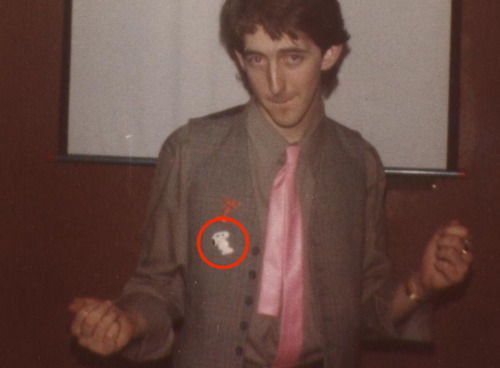
Who are the producers you return to over and over? For me, it's Scratch, King Tubby, the Dub Specialist series -- and, post-1977, the wonderful Scientist.
I am still a huge fan of Bunny Lee’s productions. He was ridiculously prolific, of course, but I rather liked that. In 1975, he must have issued around 40 singles by Johnny Clarke alone. I loved that 1974-76 period of his music.
I can always return quite happily to listen to Lee Perry productions as well. He was always so inventive and creative and groundbreaking, really. He most definitely was a true artist in the artistic sense of the word, pushing music beyond its boundaries to create sounds that were truly unusual and magnificent. An innovator. I first heard Blackboard Jungle round Steve Barrow’s place in 1976, and it blew me away. Revolution Dub is still a classic for me. I love that it features snippets from a popular British TV comedy of the time, Doctor on the Go. The dub of Jimmy Riley’s version of Bobby Womack’s Woman’s Gotta Have It is exceptional, too.
I think Niney the Observer is an often overlooked producer. Dubbing with the Observer and Sledge Hammer Dub remain real favourites of mine.
What has the response to your list been like over the years?
After 1977, the list was pretty much forgotten, and things remained that way for decades. I was proud of it at the time, but never considered it to be anything more than an opportunity for me to compile and rate the dub music I loved. I certainly never thought of it, or looked at it. It never occurred to me that anyone would read it ever again.
The advent of the world wide web changed all that. I think it was during the early 2000s when I first became aware that scans of the list were starting to appear. Frankly, I was astonished. The websites that featured it were mainly music forums and reggae sites. Obviously the list came in for some criticism regarding the positioning of some of the records. African Dub Chapter Three was a particular bone of contention, with detractors saying I didn’t know what the hell I was talking about, as I had it so far down the list. And no one agreed with my choice of King Tubby Meets the Upsetter at the Grass Roots of Dub as the no. 1 album. But it was the first dub album I bought when I was 16, and so it meant something special to me. Hindsight is a tremendous but dangerous thing.
But the positivity about the list far outweighed the negativity. Lots of people have expressed their pleasure in reading it, so I am well chuffed about that. Sly Dunbar put the list on his Facebook page fairly recently. He played on a lot of those albums! it has also been a joy to discover and read other people’s dub lists, and I thoroughly enjoyed Martin ‘Sky Juice’ Blomqvist’s recent book 100 Days of Dub. He’s so knowledgeable and his enthusiasm is infectious.
I've been able to find almost all of the records, but there are some entries that confuse me: King Tubby's Vengeance, Prophets Bootleg Dub, ABC Dub, Sir Collins in Session, Ja Man in Dub, and Aquarius Dub 2.
You’re right, Aquarius Dub 2 doesn’t seem to exist. it could be that it was planned and shelved, as a few on the list might have been forthcoming releases that were never issued in the end. And there were quite a few Vivian Jackson albums about at the time with similar titles, which could be confusing.
What have you been doing these last few decades?
I’m always dabbling one way or another. Whilst working for reggae record companies back in the 70s I got involved with singing and made a few recordings. I became lifelong friends with British lovers rock group Natural Mystic, so have sung and arranged backing vocals on quite a few of their records down the decades. For the past 25 years or so I have been working with young people on films, concerts, recordings, dance projects, self-development and community productions. My writing necessarily diverged into creating scripts and composing lyrics. And for many years I have been researching and compiling a book I’m calling Celebrate Good Times: 20th Century Soul, Reggae and Dance Music, which analyses 24 years of charts. It is a real labour of love: there are over 5000! I’ve also been writing a novel these past couple of years, which I’m finding challenging but quite rewarding.
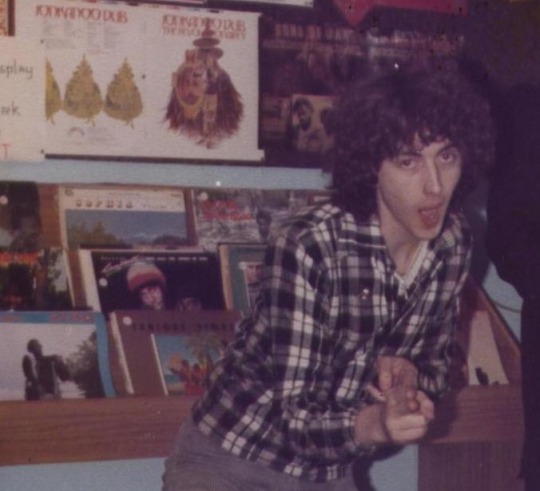
Could you pick one single song, the greatest dub of all time?
It is a fight between two records: King Tubby Meets the Rockers Uptown by Augustus Pablo and the flipside of I Admire You by Larry Marshall, King Tubby’s immense Watergate Rock. Either would be contenders for the greatest dub of all time. I love them equally.
On my millionth read of the list I noticed this: “Snoopy has decided to extend his survey of dub into a six part series.”
The whole series was entitled The Story of Dub. the people at Black Echoes were pretty amazing. They really encouraged and indulged me. The first part was published in July 1977, and was written in collaboration with my mentor, Penny Reel. He was pivotal in developing my writing and expanding my general viewing of life itself. We wrote The Roots of Dub together, and it was his influence and incredible writing that made that opening salvo so special. The list came next: Rubbin’ the Dub. The third part, More Rubbin’ the Dub, focussed on dub versions on 45. Dub Fix 50 included imports, basically just favourites of mine from my own record collection. I also invited other writers such as Chris Lane, a true pioneer in writing about reggae, Hendley, who also provided me with great photos, and Penny posing as Scotty Bennett, to submit a list of their top three dub 45s and single favourite dub album. In part four, The Routes of Dub, I wrote about 12-inch singles and provided readers with an opportunity to commission their own mixes for dub plates from Silver Camel, who remixed records; Step Forward Youth was all about young sound systems. And in mid-August was Dub Conclusion/Confusion, the end to the series. The whole thing was fun to write. But the list was my favourite part, as I love a list.
-Max Abelson
#Reggae#dub#dub reggae#Snoopy#interviews#pitchfork#rolling stone#paul nagle#black echoes#leonard malton#lee scratch perry#dub specialist#penny reel#the roots of dub#roubbin the dub#more rubbin the dub#dub fix 50#chris labrooy#scott bennett#the routes of dub#step forward youth#keith hudson#the revolutionaries#the aggrovators#augustus pablo#yabby you#joe gibbs#sonia pottinger#4th street orchestra#lloyd coxsone
109 notes
·
View notes
Photo
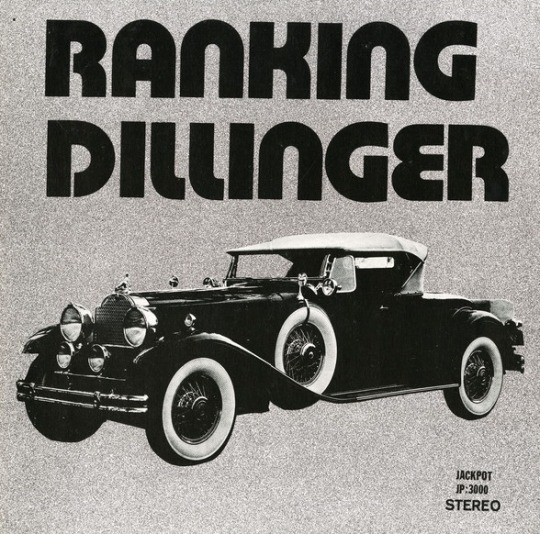
125. Ranking Dillinger - None Stop Disco Style (1977)
3 notes
·
View notes
Photo
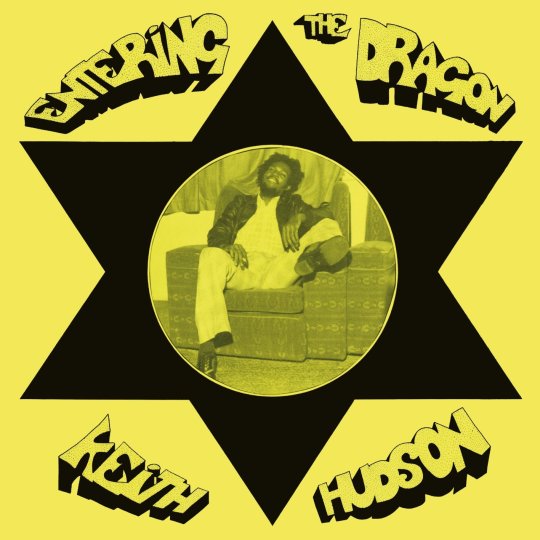
124. Keith Hudson - Entering the Dragon (1974)
48 notes
·
View notes
Photo
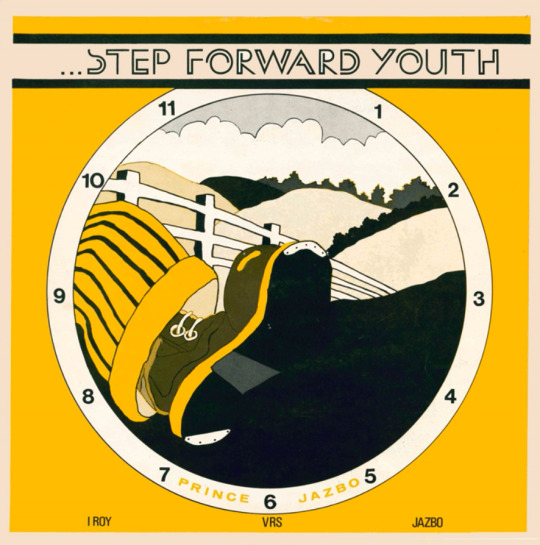
123. Prince Jazzbo vs. I Roy (and Tommy McCook & The Aggrovators) - ...Step Forward Youth (1975)
#...Step Forward Youth#Prince Jazzbo#I Roy#Tommy McCook#the Agrovators#dub#reggae#The Aggrovators#aggrovators
8 notes
·
View notes
Photo
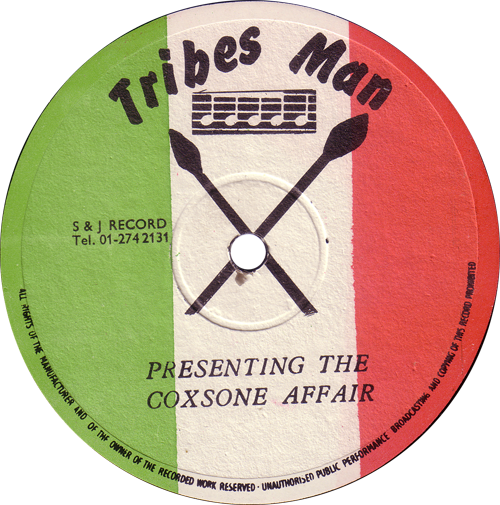
122. Lloyd Coxsone – Presenting The Coxsone Affair (1977)
#Presenting The Coxsone Affair#Lloyd Coxsone#dub#reggae#sir coxsone#sir coxsound sound#coxsone#120s#1977
1 note
·
View note
Photo
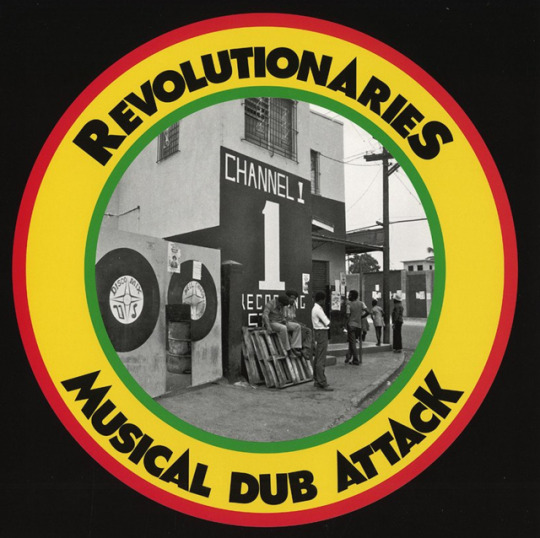
121. Revolutionaries – Musical Dub Attack (1976)
9 notes
·
View notes
Photo
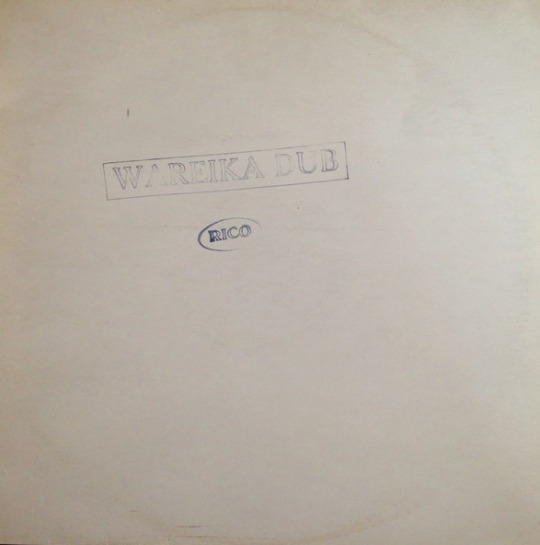
120. Rico - Wareika Dub (1977)
1 note
·
View note
Photo
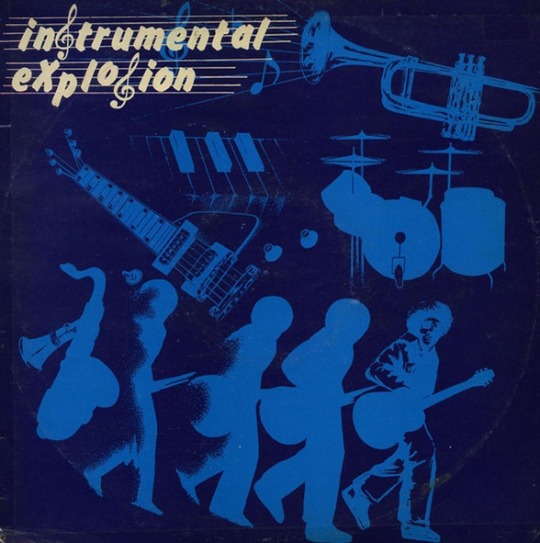
119. Winston Curtis – Instrumental Explosion (1977)
0 notes
Photo
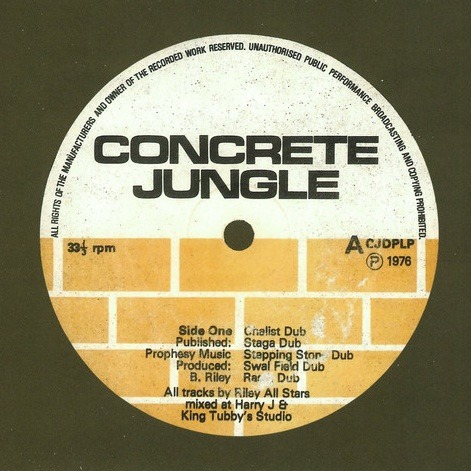
118. Riley All Stars and King Tubby - Concrete Jungle Dub (1976)
0 notes
Photo
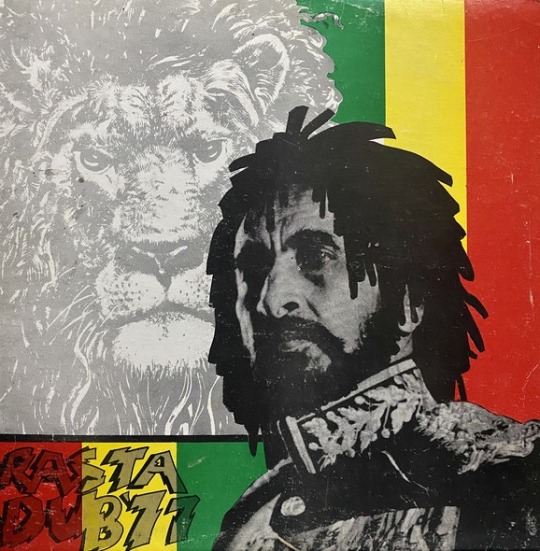
117. Pete Weston - Rasta Dub '77 (1977)
8 notes
·
View notes
Photo

116. Tommy McCook - Instrumental (1976)
2 notes
·
View notes
Photo

115. Joe Gibbs & The Professionals - African Dub All-Mighty Chapter 3 (1978)
13 notes
·
View notes
Photo
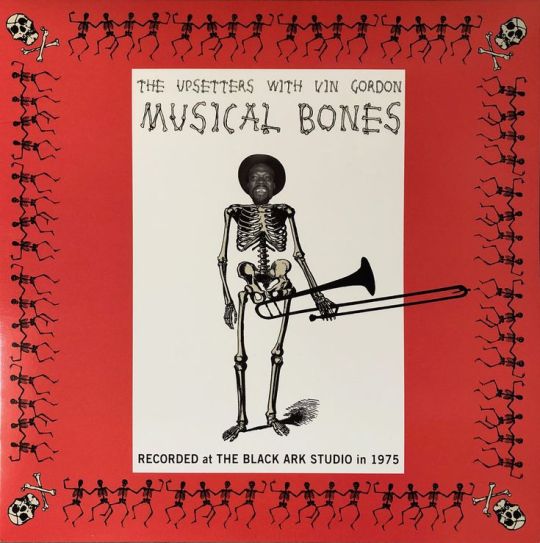
114. The Upsetters (with Vin Gordon) - Musical Bones (1975)
8 notes
·
View notes
Photo
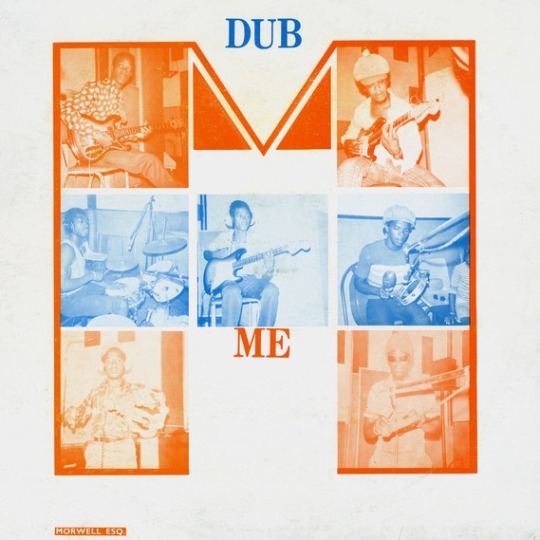
113. Morwell Unlimited (Meets King Tubby) - Dub Me (1975)
11 notes
·
View notes
Photo
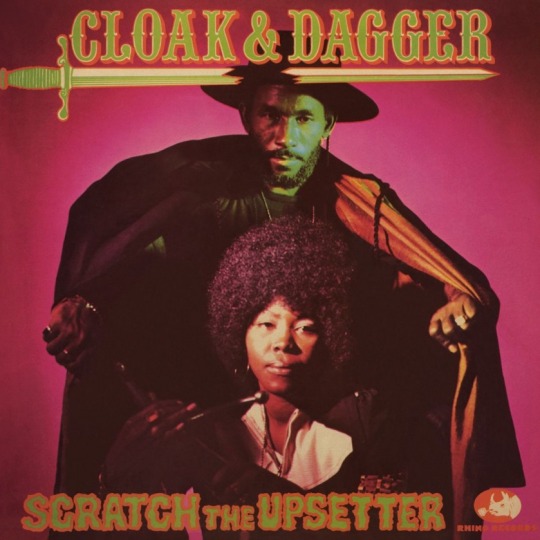
112. Scratch the Upsetter - Cloak & Dagger (1972)
54 notes
·
View notes
Photo
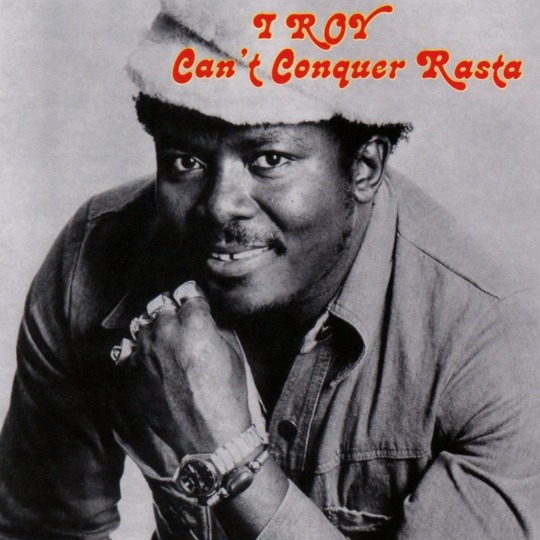
111. I-Roy - Can’t Conquer Rasta (1977)
4 notes
·
View notes
Photo

110. Manzie & Ja Man All-Stars – Ja Man Dub (1977) (Note: There was no cover, this one belongs to Manzie’s next album, King’s Dub)
1 note
·
View note